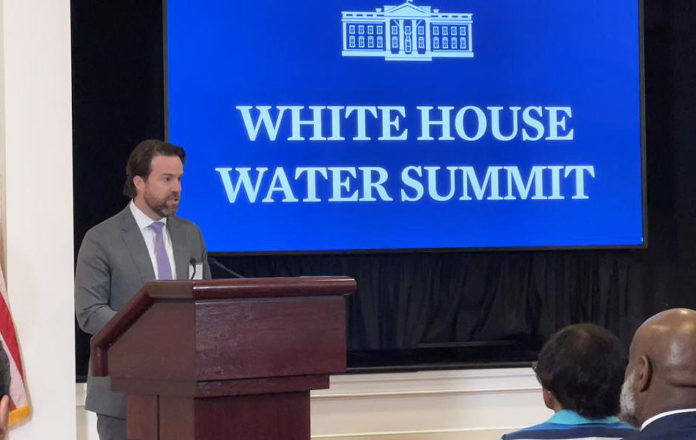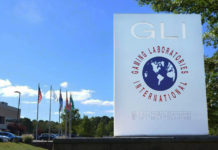
WASHINGTON, D.C. – The Department of the Interior’s Bureau of Reclamation and Indian Health Service (IHS) announced a new Memorandum of Understanding (MOU) to further develop safe drinking water and community sanitation infrastructure projects across Indian Country. Principal Deputy Assistant Secretary for Water and Science Michael Brain made the announcement at the White House’s first-ever Clean Water Summit, alongside Indian Health Service Deputy Director Benjamin Smith and Yakama Nation Chairman Gerald Lewis. Reclamation Commissioner Camille Calimlim Touton also spoke on a panel at the event to uplift Reclamation’s investments in climate and drought resilience across the West.
Through the Memorandum of Understanding, the agencies will collaborate to complete studies, planning and design to be used in constructing domestic water infrastructure projects. The collaboration is aimed at accelerating completion of such facilities in tribal communities. The MOU follows President Biden’s Executive Order 14112, which directs federal agencies to work together to remove barriers and streamline tribal access to resources.
“At the Interior Department, we know that having modern water infrastructure is not only crucial to the health of our kids and families – it’s also important for economic opportunity, job creation and responding to the intensifying effects of climate change,” said Principal Deputy Assistant Secretary for Water and Science Michael Brain. “Through this new agreement, and historic resources from President Biden’s Investing in America agenda, we are taking a significant stride towards ensuring essential water and sanitation infrastructure throughout Indian Country.
“This administration’s all-of-government approach allows us to leverage funds from historic investments through President Biden’s Investing in America Agenda to go even further for tribal communities,” said Commissioner Camille Calimlim Touton. “Reclamation is pleased to work with the Indian Health Service in exploring opportunities for projects with the Yakama Nation and other tribes to initiate implementation of this MOU.”
A potential pilot project under this agreement has been identified on the Yakama reservation in Washington State. After an IHS engineering investigation confirmed high levels of arsenic in the water system of the small community of Georgeville, the Yakama Nation and IHS agreed to construct a treatment system to remove arsenic from the water supply using Bipartisan Infrastructure Law funding. The MOU allows the Bureau of Reclamation to provide technical support for this and future projects.
“Having access to safe and reliable water systems is an essential matter of public health,” said Indian Health Service Director Roselyn Tso. “Unfortunately, far too many Native American communities are still awaiting these basic services. The Indian Health Service appreciates the Biden administration’s historic multi-billion-dollar investment in water and sanitation infrastructure in Indian Country. This agreement with the Bureau of Reclamation will accelerate completion of these critical projects and reduce barriers for our tribal nations to partner with our agencies.”
In 2022, Reclamation joined the Federal Infrastructure Task Force to improve access to safe drinking water and basic sanitation to tribal communities. With new resources provided through the Bipartisan Infrastructure Law and Inflation Reduction Act, the Bureau has committed significant funding towards tribal water infrastructure projects. Earlier this month, the Bureau made $320 million available for tribal domestic water supply projects, as part of an overall $550 million allocated through the Inflation Reduction Act and as part of President Biden’s Justice40 Initiative for domestic water assistance for disadvantaged communities. The Indian Health Service is currently in its third year of funding water and sanitation projects through a $3.5 billion investment from the Biden-Harris administration, and has announced allocation decisions of $700 million in fiscal year 2024.



















































